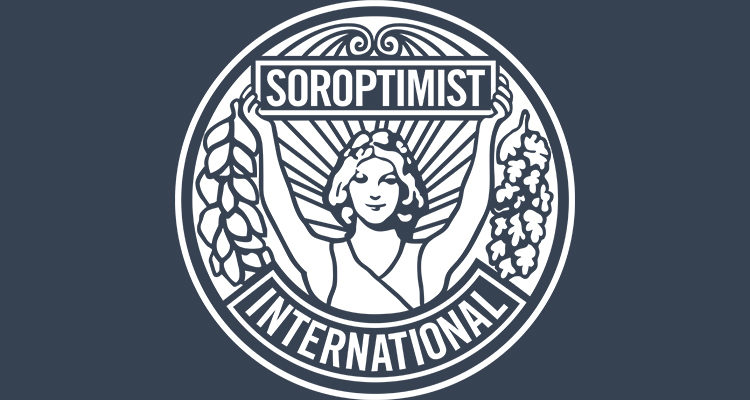A blog by SI UN Representative, New York, Vanesa Treers
“More than 100 ministers, joined by mayors, business and civil society leaders, and international organizations engaged in dialogue at the United Nations High-Level Political Forum for Sustainable Development (HLPF) on July 2018 in New York. The aim was to follow-up and report on the bold 2030 Sustainable Development agenda. This year alone, forty-six countries have submitted their Voluntary National Reviews (VNRs) a platform for sharing their experiences, including successes, challenges and lessons learnt, in implementing the sustainable development agenda. Since the adoption of the Sustainable Development Goals (SDGs), more than 120 countries have submitted their VNRs.

Photo: Vanesa Treers
The Major Group and Other Stakeholders Coordination Mechanism (MGoS-CM), a constituency formed to advance civil society participation and voice at the UN during the HLPF, provided member states with seven basic questions and key elements in preparation for the Ministerial Segment of the HLPF regarding civil society participation during the drafting of the VNRs. Questions ranged from “what mechanisms have been put in place to ensure that the voices of vulnerable groups are heard?” to “how countries had ensured citizen-led engagement strategies for the follow up of the 2030 Agenda?”, “how data on progress has been supported?” and “how the process of accountability and the rights for all persons alongside gender equality have been ensured?”.
During VNR presentations most countries recognized the importance of civil society engagement in the VNR process, however out of 46 countries, only 18 (40%) mentioned civil society in their written VNRs and few actually described a source of mechanism or open consultation for civil society participation for the drafting of the VNRs. Countries such as Albania, Australia, Bahamas, Canada, Ecuador, Egypt, Jamaica, Lebanon, Lithuania, Mexico, Paraguay, Poland, Qatar, Senegal, Singapore, Spain, United Arab Emirates and Uruguay reported a form of implemented mechanism for civil society participation during their VNR presentations. For example, Spain shared information about their multi-stakeholder platform “Futuro Comun” which has integrated more than 50 organizations from 8 social sectors such as environmental issues, human rights, social action, feminism, youth, cooperation for development and global justice, people with disabilities, alternative economy, syndical and human movements.
Ecuador, Romania, Lebanon and Qatar emphasized their civil society contributions through public consultations for the drafting of VNRs. Other countries such as Romania, Finland, Laos, Norway and Jamaica worked with a national coordination mechanism for the 2030 Agenda, as a technical body integrated by representatives from government, civil society groups, private sector, academia, trade unions, political directorate and youth. Public consultations and national working groups were the most common strategies, however only 40% of countries reporting this year attempted to incorporate such strategies at some level.
According to a report published by the Civil Society Reflection Group on the 2030 Agenda for Sustainable Development (2018), titled ‘Spotlight on Sustainable Development’, most governments have not turned the 2030 Agenda into real policies on the ground. In some cases, policies are even moving backwards. This underscores the importance of fiscal and regulatory policies and a whole-of-government approach towards sustainability; promotion of policies that benefit sustainable development, human rights and gender justice; ensuring that SDG implementation is prioritized by heads of government and not “hidden in the niche” of environment and development policies, and ensuring that national sustainable development strategies constitute the “overarching framework for all policies.”
Civil society organizations are non-partisan political actors that provide diverse approaches and enable citizens’ capacities to hold governments accountable. The MGoS coordination mechanism for the HLPF advocated for a more accountable process that encourages shadow reports and a follow-up process with specific recommendations and feedback for countries to achieve SDG implementation. “Although the HLPF has gathered governments and actors from all walks of life with the “one heart” that guided the vision of the 2030 Agenda,” said Liu Zhenmin, UN Under-Secretary-General of Economic and Social Affairs, for many civil society organizations the HLPF and VNR process is yet to successfully ensure meaningful civil society participation.
The Civil Society Organization (CSO) Partnership for Development Effectiveness (CPDE) study showed that the VNR process has still many gaps specially to enable an inclusive environment for civil society organizations. It was reported that implementation of the 2030 Agenda at the national level is mainly government centered and lacks strong policy objectives. The CPDE outcomes highlighted that though there are consultations with civil society of the VNRs process, these consultations are not necessarily formal in all cases and it is not clear to what extent drafting and SDG implementation have been taken into consideration for the VNR.
At the HLPF 2018 civil society organizations and advocates from VNR countries submitted parallel reports and addressed members states at the end of the Ministerial Segment sessions, asking for answers regarding clear mechanisms to make the voluntary national reports inclusive to all. Yet many questions still remain to be answered and it is hoped that next year HLPF countries presenting their national reports are able to present concrete and inclusive strategies that go beyond public consultations, and provide clear outcomes of civil society feedback. As well as to support policy coherence for national SDG implementation, citizen-lead strategies, a multi-stakeholder approach and channels that feedback into the VNR process.
Mechanisms to ensure an enabling environment for civil society participation are still difficult to achieve without political will and policy coherence. The vast majority of countries’ national reports lacked strong VNR process that are accessible, participatory, and transparent. An enabling environment for SDGs implementation would include a holistic approach that is inclusive to all stakeholders and the implementation of policies that facilitate such participation. UN Deputy Secretary-General Amina Mohammed emphasized during the forum the importance of having coherence between civil society and governments and the need of working with stakeholders to ensure that, quoting Mother Teresa, “you can do what I cannot do, and I can do what you cannot do, but together, we can do great things.”

